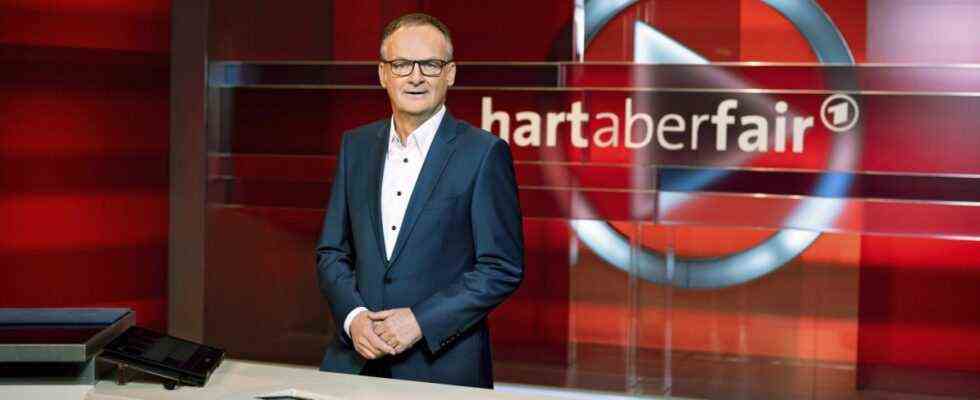The round of questions about the pre-election time has already produced some peculiar vocabulary. Triell, for example, or four-way fight. Just as uncomfortably, the round on this Monday evening could perhaps be described as the six-game. Less than a week before election Sunday, Frank Plasberg put the chairmen of the six Bundestag parties on his talk stool – or as he calls it: “the parliamentary center of power, so to speak”. Under the slogan “Final spurt in the election campaign: Who will score the last points?” should it get really exciting again, at least that’s the theory.
It starts, at least a bit suspense, with an empty chair in the middle. FDP leader Christian Lindner is still missing. According to Plasberg’s calculations, he should already be there: “Christian Lindner’s navigation system just said 9:29 pm.” In any case, it will be at least 9:35 p.m. until Lindner rushes into the first round of questions. The topic: what the parties plan for the first 100 days. Lindner, still walking, makes a confident debut: “I take care of the transport infrastructure.”
For a latecomer, Lindner gets up to operating temperature impressively quickly. It takes less than ten seconds before he is already giving a lecture on economic growth in the USA and China and a “jump start” from the corona crisis. “I suspect that Katrin Göring-Eckardt may have been talking about the climate,” he then speculates and draws attention to a basic problem that will determine the further course of the evening: that one can guess who will answer how without looking.
Weidel doubts vaccination protection
When it comes to Corona, there is an expected exchange of blows between the AfD parliamentary group leader Alice Weidel and the rest of the group. Weidel, who says he is not vaccinated (“I take care of my health, of course”), speaks of a “two-class society” and doubts that those who have been vaccinated spread the virus less often than people without a vaccination. Embarrassed to confused faces. “I understand that people are scared, that’s normal in life,” replies Goering-Eckardt. “But now we have a situation where people consciously put others in danger.”
This is followed by a discussion on the top tax. Summary: Amira Mohamed Ali from the Left is in favor, Rolf Mützenich from the SPD actually also, Christian Lindner rather not.
There is still enough time for the party representatives to advertise the respective candidates for chancellor. “Annalena is the one who is on stage with courage and energy and, by the way, also humanity”, Göring-Eckardt whispers about Baerbock. “He basically has a way that is really good,” says Union parliamentary group leader Ralph Brinkhaus about Armin Laschet.
At the very end, a topic flashes up that has not played a major role in previous TV debates: foreign policy. When asked about the NATO aversion of the left, Amira Mohamed Ali at least rows back slightly: Her party does not want to resign tomorrow, but rather wants to develop NATO into a “real peace alliance, including with Russia.” Nevertheless, the others in the group don’t seem really convinced. But there are still six days until the election.
Kathrin Müller-Lancé would like to claim that she is only in the Arte media library. But then she likes to look exclusively at RTL to see what the celebrities are doing.

